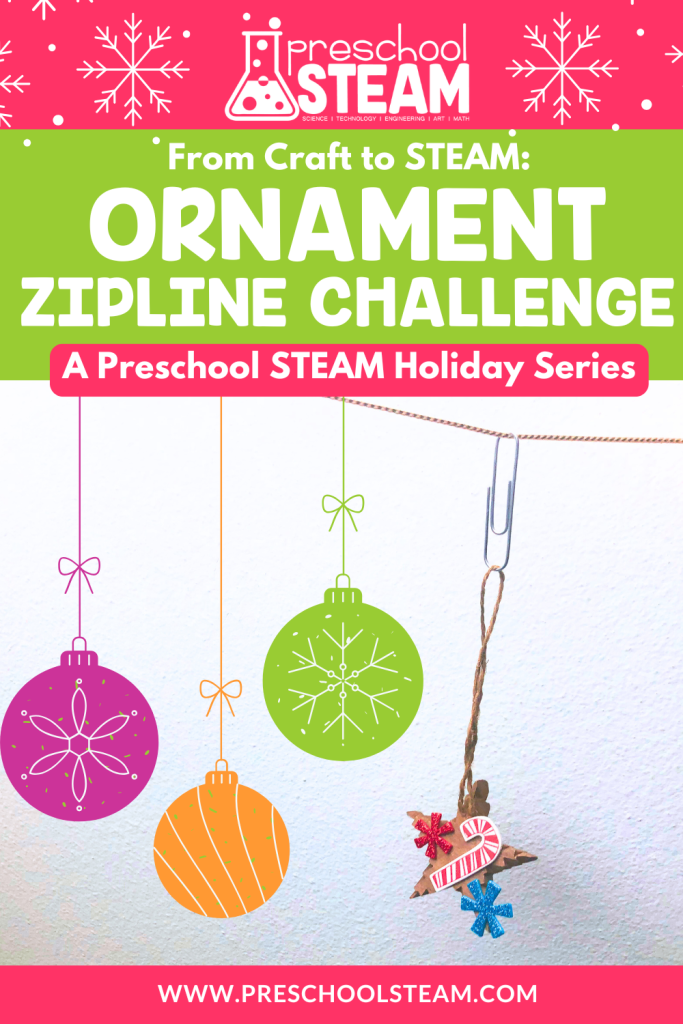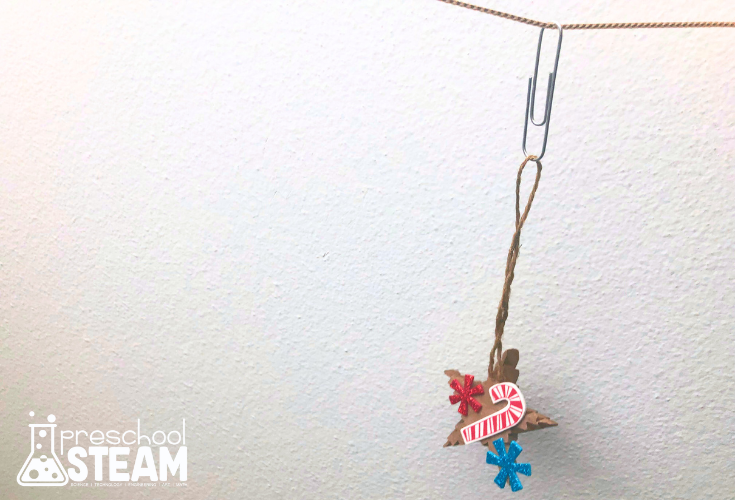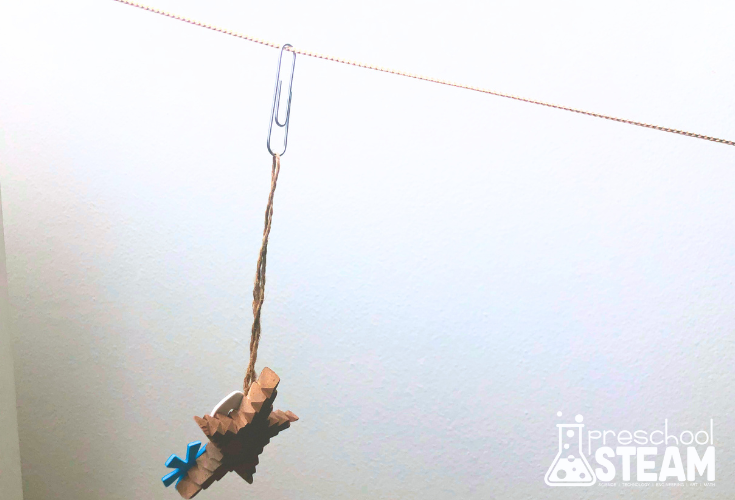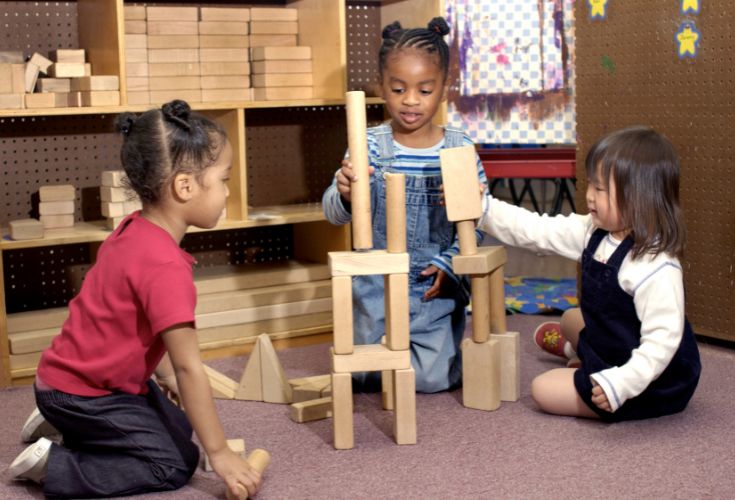From Craft to STEAM: A Preschool STEAM Holiday Series
This season, we’re reimagining favorite holiday crafts through the lens of play-based STEAM learning.
Each week, we’ll take a classic preschool craft and show you how to turn it into a hands-on STEAM challenge that invites curiosity, creativity, and real problem-solving without adding extra prep to your plate.
In this week’s From Craft to STEAM challenge, we’re transforming simple ornament-making into a hands-on zipline experiment!
Children will design, build, and test their own ornaments to discover what makes them travel faster, slower, or all the way to the end of the line.

Step 1: Invite Play — Create & Build
Start with the creative process that children already love, making their own ornaments!
You can offer a variety of materials and let children decide how to design theirs.
Materials:
- Pipe cleaners (bend into circles, stars, or candy canes)
- Cardboard or construction paper ornament shapes (cut from templates or traced)
- Beads, buttons, sequins, pom-poms, or stickers for decorating
- Tape, glue, or hole punch
- String or yarn (for the zipline)
- Straw pieces or paper clips (for threading onto the zipline)
- Optional: ruler or timer for measuring distance or speed

Encourage open-ended creativity. No two ornaments should look the same!
Once the ornaments are ready, introduce the challenge:
“Can you make your ornament travel down the zipline?”
Attach a length of string or yarn between two chairs or tables. Make one end slightly higher than the other to create your zipline.
Show how the ornament can “ride” the line by threading a straw or paper clip through its top.
Then step back and let children test, tinker, and redesign their ornaments to see what helps them move smoothly from start to finish.
Teacher Tip:
Offer a mix of lightweight and heavier materials. Children will quickly notice how weight, size, and shape affect how their ornament travels.
Step 2: Observe Wonder — What to Watch For
As children test their ornaments, you’ll see the magic of discovery unfold:
- Some ornaments zoom quickly down the line.
- Others get stuck or slow halfway.
- Children start making adjustments, adding tape, changing the angle, or re-threading their design.
Listen for their curiosity in action:
“Mine went really fast!”
“It got stuck!”
“What if I make it heavier?”
These are early engineering and scientific observations happening through play.
Teacher Tip:
Ask open-ended questions like, “What could you change to make it go farther?” or “What do you notice when the string is higher or lower?”

Step 3: Extend STEAM — Add Layers of Learning
Science:
- Explore motion, gravity, and friction.
- Ask: “What happens when you change the slope of the zipline?”
Technology:
- Use a timer to measure how long it takes for ornaments to travel.
Engineering:
- Encourage children to test different shapes or materials to improve their design.
- Challenge: “Can you build the fastest zipline ornament?”
Art:
- Let creativity shine! Encourage expressive designs and unique ornament shapes.
Math:
- Compare which ornaments traveled the farthest or fastest.
- Measure the length of the zipline and record “race results.”
Step 4: Reflect & Share
Bring children together to share their discoveries and designs.
Ask:
- “What made your ornament move fast?”
- “What did you change to make it better?”
- “Which materials worked best?”
Celebrate with a class “Zipline Parade” line up everyone’s ornaments at the top, count down together, and let them all race!
Teacher Takeaway
This playful challenge combines creativity with real-world STEAM thinking.
Children explore motion, force, and problem-solving, all while enjoying the joy of the holiday season.
When play meets curiosity, even a simple ornament can become a powerful learning experience.
Keep Exploring
This post is part of our Craft-to-STEAM Holiday Series!
Check back next week for:
❄️ The Paper Snowflake Float Challenge!
Want more ready-to-use STEAM invitations like this one?
Explore the Preschool STEAM Membership for seasonal Play Guides, Tinker Tub challenges, and hands-on activities that make curiosity easy and fun.

Leave a Reply